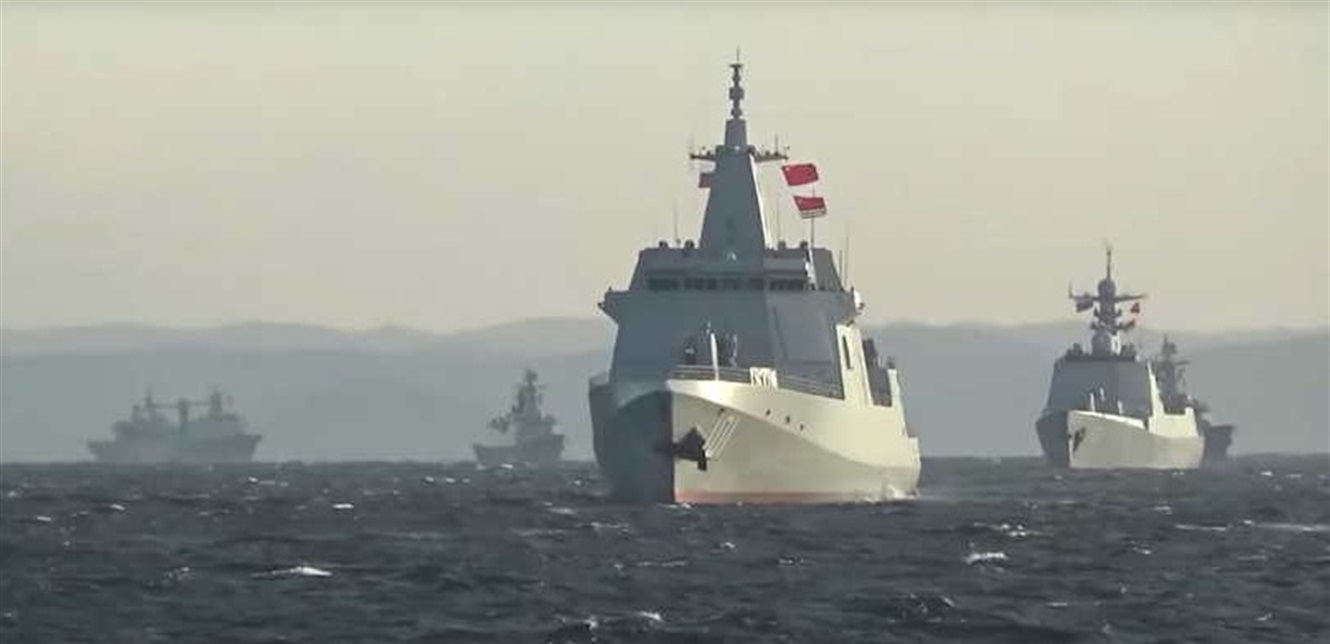
-
Published: 24 October 2021

After announcing alliances, missile tests, increased armaments and military exercises, day after day tensions in the Pacific increase amid fears of imminent conflict.
Under the pretext of deterrence and counter-deterrence, the Asian region is experiencing an extensive arms race in a game that attracts forces between China, its partners, the United States and its allies, and Beijing accuses Washington of escalating tension by forming a military alliance in the region.
Washington has woven a series of security and political alliances into the demands of the South China Sea countries in the face of Beijing, where this water surface is experiencing a huge sovereignty problem and a dispute over control of the islands, its waters and its multiple straits.
Against the backdrop of China's expansion, which has published maps covering the majority of seawater as Chinese, the confrontation between the two forces in the South China Sea is unfolding, sparking protests from many ASEAN States, a number of which are part of their territory.
In the middle of last month, Washington announced the "Okus" security alliance with Britain and Australia in a move to rearrange the force in the Pacific.
The Convention is widely seen as an attempt to counter Chinese influence in the South China Sea, where the region has been a hotbed of tensions for years.
At the end of last month, the leaders of the United States, Japan, India and Australia held the first direct meeting of the so-called "quad" conglomerate, led by several files, most notably the security of the Indian and Pacific Oceans.
In contrast, Moscow and Beijing, which conducted naval cooperation exercises in the Sea of Japan earlier in October, have established closer military and diplomatic relations in recent years at a time when their relations with the West have been strained.
Since 2012, Moscow and Beijing have conducted regular maritime exercises. Since 2018, the Chinese People's Liberation Army has participated in the three annual Russian strategic exercises, and now the Russians are taking part in exercises in China.
In response to a question about why China and Russia had not signed a full agreement on a military alliance, the Chinese Ambassador to Moscow, Zhang Hanhui, replied: "We are more than allies, we are brothers."
Saturday, the Russian Ministry of Defence announced in a statement that Russian and Chinese warships had conducted their first joint patrols in the western part of the Pacific on 17 and 23 October.
The Ministry added that "the tasks of these patrols are to demonstrate the science of the States of Russia and China, to maintain peace and stability in the Asia-Pacific region and to protect the areas of maritime economic activities of the two countries."
Earlier in October, the two nations conducted maritime cooperation exercises in the Sea of Japan, strengthening their military and diplomatic relations in recent years at a time of strained relations with the West.
Last August, in northwestern China in the Ningxia Autonomous Region, joint Russian-Chinese strategic military exercises "West/Interaction- 2021" were conducted with the participation of 10 thousand military personnel from both countries.
Military exercises between the two countries were an explicit message to America, a continuation of the cold war, a "muscle parade" and reassurance for allies in the region.
It was considered that the Pacific region might experience skirmishes such as the entry of a territorial water boat or an airplane, while outright war was ruled out by what he considered China's quiet policies.
